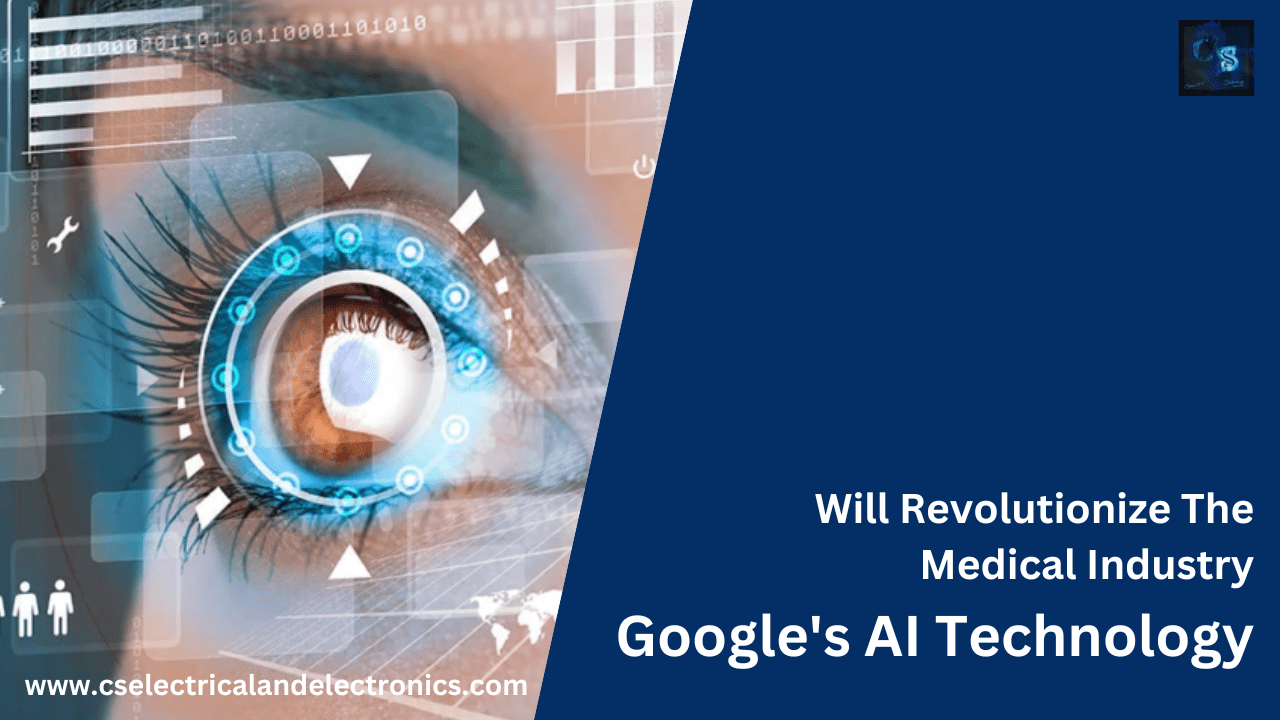Google’s AI Technology Will Revolutionize The Medical Industry
Hello guys, welcome back to our blog. Here in this article, we will discuss Google’s AI Technology that will revolutionize the medical industry, and we will discuss the benefits of using this technology.
If you have any electrical, electronics, and computer science doubts, then ask questions. You can also catch me on Instagram – CS Electrical & Electronics.
Also, read the following:
- What Is Computer Graphics Technology, Working, Benefits, Uses
- What Is Air Gen Technology, Working Of Air Gen, Diagram, Benefits
- AI Tools For Electronic Circuit Design, Which Is Best?
Google’s AI Technology Will Revolutionize The Medical Industry
Sundar Pichai, CEO of Google, and the company’s state-of-the-art artificial intelligence (AI) technology is leading a paradigm shift in the health tech sector. With the help of Google’s AI, cardiovascular events can now be anticipated through an eye scan, marking a potential shift away from conventional diagnostic techniques like CT scans, MRIs, and X-rays, according to Pichai’s recent announcement.
Google’s AI’s Influence on Health Tech
Four years ago, a team of researchers from Google and Aravind Eye Hospital set out a goal to create an automated tool for diagnosing diabetic retinopathy, the world’s biggest cause of blindness. When given retinal pictures of a patient, the algorithm they built could quickly diagnose the condition and identify the disease’s symptoms. The identification and treatment of eye diseases are likely to change when the algorithm is given the go-ahead to function autonomously.
However, the AI’s powers went beyond that. Google unveiled an algorithm based on retinal imaging earlier this year that can determine a person’s sex, smoking status, and five-year chance of having a heart attack. The AI opened up a world of possibilities for early diagnosis of various diseases including dementia, multiple sclerosis, Parkinson’s, Alzheimer’s, and even schizophrenia because it had the capacity to identify issues that the people who trained it couldn’t.
Computer Vision and AI: A Window to Cardiovascular Health
The retina of the eye, in particular, serves as a window into the health of the entire body. Blood arteries that represent the health of the body as a whole are present in the fundus, the back internal wall of the eye. Doctors are able to deduce key details about a person’s look, such as their blood pressure, age, and smoking habits, all of which are significant indicators of their cardiovascular health.
Google and Verily’s experts employed machine learning to examine a medical dataset of over 300,000 patients in order to develop their cardiovascular prediction system. Along with general medical information, this data also included eye scans. Then, using neural networks to identify patterns, the metrics required to predict cardiovascular risks, such as age and blood pressure, were connected with telltale indicators in the eye scans.
In tests, Google’s AI was 70% accurate in differentiating between the retinal scans of two patients—one who experienced a cardiovascular incident in the five years that followed and one who did not. Despite requiring a blood test and producing accurate predictions 72% of the time, the SCORE technique of assessing cardiovascular risk performed just marginally worse.
The Evolution of Medical Diagnostics
This ground-breaking way of determining cardiovascular risk not only expedites and simplifies the process for medical professionals, but also heralds the arrival of a new AI-driven paradigm for scientific research. The AI algorithm is developing new methods for analyzing already-existing medical data, suggesting that, given enough data, artificial intelligence can develop whole new medical discoveries independently of human guidance.
Additionally, this technique has applications outside of cutting-edge hospitals. A cheap, portable system incorporating a smartphone, a reasonably priced condensing lens, and a DIY retinal camera could enable vision screenings on the go in rural vision centers that may not have access to specialized equipment. The immense potential of this technology was demonstrated by the fact that patients could take a picture, upload it to the cloud, and get a diagnosis in a matter of seconds.
Though it may seem like a distant possibility, research indicates that the idea of an AI doctor independently coming up with new diagnoses is not altogether unfeasible. As demonstrated by Sundar Pichai’s announcement, Google’s AI is already moving in the direction of a time when traditional diagnostic techniques can complement the knowledge we can gather through our eyes. The future holds a world in which a fast eye scan might identify undiagnosed medical conditions and anticipate impending cardiovascular events, revolutionizing the way we approach diagnosis and therapy.
Every eye tells a narrative in the hands of Google’s AI, and every tale brings us one step closer to a healthy future. The adage “To understand the body, look to the eye” resonates more than ever as we go through this exciting era of health technology. The picture of health care is becoming more distinct, and it is staring right at us.
This was about “Google’s AI Technology Will Revolutionize The Medical Industry Will Revolutionize The Medical Industry“. I hope this article may help you all a lot. Thank you for reading.
Also, read:
- 100 (AI) Artificial Intelligence Applications In The Automotive Industry
- 1000+ Automotive Interview Questions With Answers
- 2024 Is About To End, Let’s Recall Electric Vehicles Launched In 2024
- 6G Technology: What To Expect Beyond 5G
- 7 Ways EV Batteries Stay Safe From Thermal Runaway
- 8 Reasons Why EVs Can’t Fully Replace ICE Vehicles in India
- A Complete Guide To FlexRay Automotive Protocol
- Adaptive AUTOSAR Vs Classic AUTOSAR: Which One For Future Vehicles?

